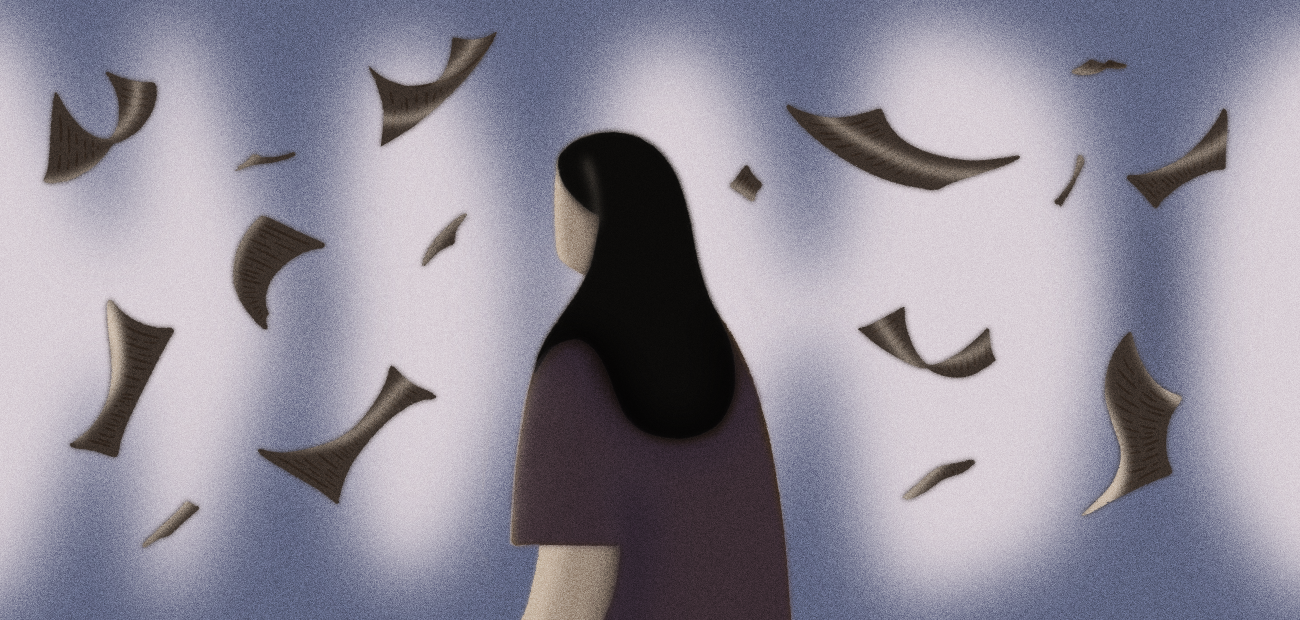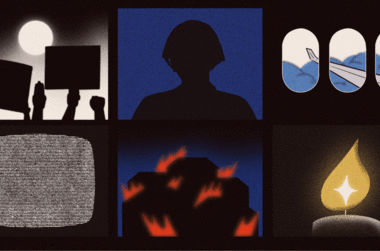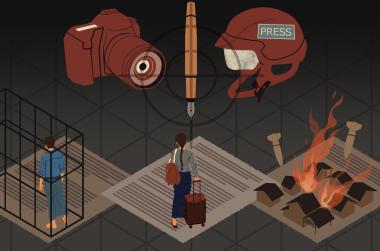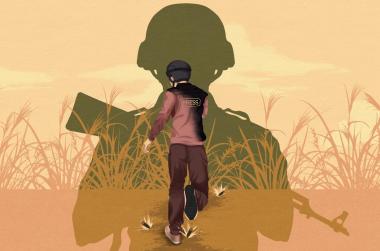The author is a journalist from Kachin State and they are receiving support from The Kite Tales to write these diaries.
I was never someone who grew up saying: “When I grow up, I want to be a journalist.”
Now I can’t imagine doing anything else.
But war, exile and now the job losses linked to America pulling funding from independent media covering Myanmar mean that for me it has never been so difficult to keep reporting the news.
I come from a small town in Kachin and my family had no close ties to politics. As a child, I only listened to news from state-owned TV channels, but occasionally, I would overhear my father listening to Radio Free Asia and Voice Of America on the radio.
After finishing my final year at university, I worked as an intern at a local human rights organization in my town. It was during this time that, I encountered people who had no voice and whose struggles went unnoticed. That experience made me wonder: What can I do for them? How can I help? That was when I first became interested in journalism.
I attended a training course and became a video journalist. Knowing that I could bring the concerns of ordinary people to the attention of authorities and seeing positive changes in people’s lives because of my reports made the job very fulfilling.
But that was before the military seized power.
In the days following the coup, I roamed the city with my camera, documenting protests, while soldiers and police pursued me. Every night, I moved between safe houses.
My mother was constantly worried. On the night of April 9, 2021, a family conflict erupted. My mother desperately pleaded with me to quit journalism and move to another township, citing her declining health. Around the same time, the military arbitrarily arrested a journalist friend of mine while covering the protests. My mother’s fear for my safety intensified.
But there were very few journalists in my town, and I felt I couldn’t abandon my work. In a moment of desperation, I threatened: “If I can’t hold a camera, I might as well hold a gun.”
In the end, I won the argument - I kept my camera.
After my journalist friend was arrested, my name was also linked to a case. When I found out, I fled to a liberated area, controlled by armed resistance to the Myanmar military.
Later, I heard from my neighbours that an unknown man often sat outside my house, watching. In April 2022, a man, believed to be from the security forces, entered my home and interrogated my relatives. This forced my family to relocate as well.
After a time, I decided to return and I went to the township where my mother had moved, but the military’s strict security measures and frequent checks meant it was near impossible to work as a journalist there.
So I had to leave. Again. To somewhere with no family or connections.
In Thailand, where I have sought refuge, I find myself confined to a room measuring six feet by seven feet and relying on sources to do my reporting. This often leaves me feeling inadequate and frustrated. I miss being able to go out and gather news in person.
This year marks the fourth year since I fled Myanmar. It has been a struggle, every single year, not just to find work but to even obtain legal residency.
The most exhausting days were when I found out that my mother was sick with COVID and lying in bed alone. Because of the path I chose, I felt immense guilt towards my family, but at the same time, I couldn’t give up my work as a journalist.
The year 2025 looks like it will be even more challenging. I had to leave the news agency where I was working and started to look for a job. A media organisation expressed interest in hiring me and reached out for a meeting. Before that happened though, news broke that USAID funding would be suspended, including for Myanmar newsrooms.
I never heard back from them.
Many media organizations in Myanmar rely on USAID support, so given the situation, I understand why news agencies are hesitant to hire new staff. Some of my journalist friends have also lost their jobs.
Securing a journalism job is now harder than ever. Still, I have a strong attachment to this profession, and because of my existing network of contacts across different regions, I still want to report on the conditions of my country and its people.
Amid these difficulties, some of my daily contacts were killed in battle. Sometimes, I only learned about their deaths when I saw their obituaries online. These incidents deeply affected my mental health.
At times, I considered quitting journalism altogether, but in the end, I couldn’t sever my connection with this profession.
Recently, I had the opportunity to visit Karen and Karenni IDP camps, where I saw firsthand how these people endure the brutality of the military, sometimes with tears, sometimes with smiles. Witnessing their resilience reaffirmed my commitment to journalism.
Even though I cannot take up arms and fight, knowing that my reports and articles help displaced civilians connect with donors and receive aid has strengthened my resolve to continue. Many of my colleagues feel the same way.
Artwork by JC who is receiving support by The Kite Tales to produce illustrations.





